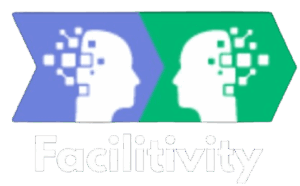Ethical Practices
At Facilitivity, ethical practice is a lived and visible part of how we operate as an organization, not just a set of formal statements. We embed ethical behavior throughout our training, instruction, and operations, ensuring it is modeled, taught, and evaluated.
Guiding Principles for Ethical Decision-Making
All faculty and participants are expected to uphold the ICF Code of Ethics. Faculty model ethical decision-making during training, including how they navigate complex moments with transparency, care, and respect. This is reinforced through our onboarding and development processes (see Faculty Professional Development and Instructor Evaluation Process), and reflected in how we handle sensitive topics and real-time dilemmas during sessions.
Standards of Behavior and Integration into the Program
Our expectations for professional behavior—such as maintaining confidentiality, psychological safety, and cultural sensitivity—are communicated through our DEIJ Policy, Ethics Statement, and Code of Conduct. These standards are operationalized across the participant experience, including orientation, training agreements, peer interactions, mentor coaching, and feedback. Our Instructor Evaluation Form includes prompts directly tied to trust, safety, and ethical presence, ensuring these standards are actively practiced and observed.
Supportive and Respectful Environment
Facilitivity places psychological safety and inclusiveness at the center of all interactions. Our faculty are selected and continually evaluated for their ability to create environments of trust, respect, and mutual learning. We support students with documented disabilities, maintain an open-door culture for concerns, and explicitly prohibit harassment or discriminatory behavior (see Disability and DEIJ Policy).
Trust and Accountability
We foster trust through transparent communication, fair pricing, and a values-based sales process (see Ethics, Integrity, and Transparency Statement). Participants are encouraged to raise ethical concerns, and we provide a clear grievance process to ensure accountability. Instructor performance is reviewed through faculty debriefs and student evaluations, which serve as mechanisms for both quality control and cultural reflection.
Continuous Reflection and Review
Our ethical practices are not static. They are reviewed regularly through student evaluations, faculty debriefs, and internal process reviews to ensure our culture remains aligned with our values and responsive to what our participants and team members experience in practice. Because our training prepares coaches to embody the ICF Core Competencies—including ethical practice—our faculty must both model what we teach and continuously refine how we uphold and teach these standards. This requires us to remain vigilant, adaptive, and self-reflective as an institution.
